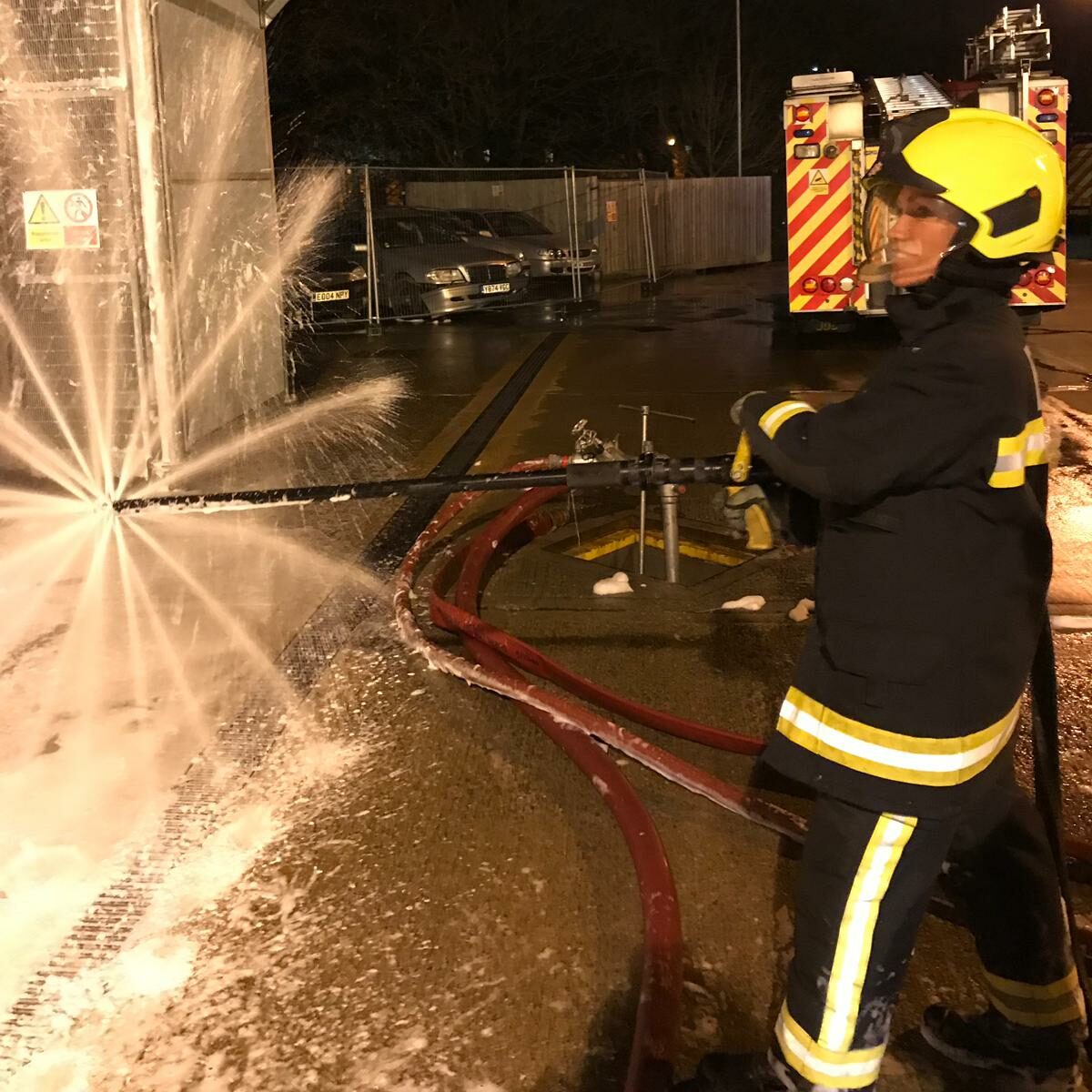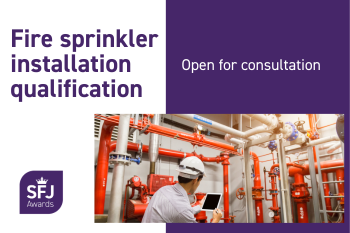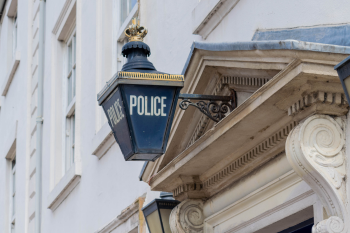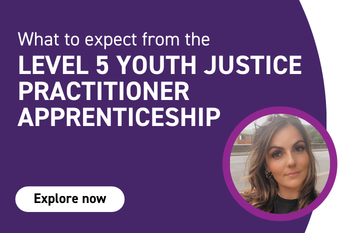After completing her On-Call Firefighter Apprenticeship in 2021, Laura Hutchings from Devon and Somerset Fire and Rescue Service recently took on the role of Learning & Development Lead to help support the latest cohort of apprentices enrolled on the very same programme.
So impressed was she by what apprenticeships bring to the table, it was a natural progression into her current role.
We asked Laura about her experiences on the pilot apprenticeship scheme, and how this has helped her on her journey in the fire service.

Q: What first attracted you to a career in the fire service?
A: I took voluntary redundancy from my corporate role of about 14 years. Whilst I was having a bit of a break to spend some time with my two boys, I saw one of the recruitment banners outside a local fire station. I always wanted to be a firefighter, I did public services at college but when I was at college it wasn’t really encouraged as a female to go down that route. I thought it was too difficult so I ended up going down a different career path but then I saw and I thought you know what I can do that and applied and was successful. So, I got my contract with Newton Abbot Fire Station and was lucky enough to be also enrolled on the apprenticeship.
Q: What were some of the key learning points to come out of the on-call firefighter apprenticeship?
A: Because I was initially enrolled on the normal development route via the non-apprenticeship, I could see there was quite a big difference because the apprenticeship is aligned to the ‘whole-time’ development, and we were getting access to training which would allow us to do the same that whole-time would do. For me that was huge. It included more training on business safety and community support. The standard of the training was also on a par with that for wholetime firefighters, providing access to business safety and community support opportunities more frequently. We needed to complete certain amounts of tasks to be able to achieve our apprenticeship, which meant that the hours we needed in order to complete the apprenticeship were freed up for us. These factors helped me become a better firefighter.
Q: The apprenticeship includes lots of opportunities to use your learning journal, which should help with your End-Point Assessment. How did you use it?
A: Absolutely, the files were fantastic to use, easy to use, it had an app that allowed you to input information soon after an incident which was quite helpful, or after training and then going through it before the End Point Assessment (EPA) was really helpful. Just having access to that and reminding yourself because it is a long journey and Newton Abbot is very busy as well, so you have lots of incidents, lots of great opportunities to choose from really, to display those skills and bring them along to the EPA.

Q: What has your experience been like since completing your End-Point Assessment?
A: I have, so having done another apprenticeship within my old role, a Leadership apprenticeship as well as the Firefighter apprenticeship, I’m now the Services Apprenticeship Lead, so quite exciting and I’ve enrolled into a CMDA so Chartered Manager apprenticeship which I start tomorrow so that’s very exciting so that’s Level 6 and its degree. And actually, for me I didn’t go to university, and I didn’t want to end up with student debts so doing the apprenticeship to gain a degree is going to prevent me from having those student debts but also, I’ll be doing it whilst I’m doing my role. So, a win-win, so really happy and excited about that.
Q: Are you finished with apprenticeships yet or can you see yourself doing another one following your On-Call Firefighter Apprenticeship?
A: I’ll be looking at the next one after that.
Q: What advice would you give any service looking to have a go at doing the operational firefighter apprenticeship for the on-call?
A: For me, it was a success. It really helps bridge that gap between ‘On Call’ and ‘Whole-Time’ and it gives people a great opportunity to move into a ‘Whole-Time’ role. This is one of the things we’ll be looking at moving forwards – an option to have an on-call to whole-time process currently and how we build the apprenticeship into that. Allowing those on On Call Apprenticeships to gain a whole-time role through this route would be a really positive outcome for me, and it’s a great opportunity.
We have also aligned all of our firefighter development to the same standard so there is a consistent approach to training, so our next step would be to encourage all our new on call trainee firefighters to enrol onto programme and gain a worthwhile qualification.
SFJ Awards have a tried and tested approach to End-Point Assessment for the Operational Firefighter Apprenticeship. We offer impartial, robust, and supportive solutions to help employers and training providers guide apprentices through End-Point Assessment.
If you are looking for a robust, end-to-end quality assurance process for your EPA, please contact our team on 0114 284 1970 or email [email protected] and we will be happy to provide you with further information and pricing.





